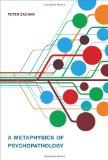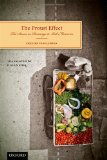March 31, 2014

Words as Social Tools: An Embodied View on Abstract Concepts by Anna M. Borghi and Ferdinand Binkofski (Springer, 2014)
(kindle ed.), (amazon.co.uk), (UK kindle ed.)
Book description from the publisher:
How are abstract concepts and words represented in the brain? That is the central question addressed by the authors of “Words as Social Tools: An Embodied View on Abstract Concepts”. First, they focus on the difficulties in defining what abstract concepts and words are, and what they mean in psycholinguistic research. Then the authors go on to describe and critically discuss the main theories on this topic with a special emphasis on the different embodied and grounded theories proposed in cognitive psychology within the last ten years, highlighting the advantages and limitations of each of these theories. The core of this Brief consists of the presentation of a new theory developed by the authors, the WAT (Words As social Tools) view, according to which both sensorimotor (such as perception, action, emotional experiences) and linguistic experiences are at the basis of abstract concepts and of abstract word representation, processing and use. This theory assigns a major role to acquisition: one of the assumptions the authors make is that the different ways in which concrete and abstract words are acquired constrain their brain representation and their use. This view will be compared with the main existing theories on abstractness, from the theory of conceptual metaphors to the theories on multiple representation. Finally, the volume illustrates recent evidence from different areas (developmental, behavioral, cross-cultural, neuropsychological and neural) which converge with and support the authors’ theory, leading to the conclusion that in order to account for representation and processing of abstract concepts and words, an extension of embodied and grounded theories is necessary.
Comments (0)
- cognitive science,language,new books
March 27, 2014

Future-Minded: The Psychology of Agency and Control by Magda Osman (Palgrave Macmillan, 2014)
(amazon.co.uk)
Book description from the publisher:
What drives us to make decisions?
Future-Minded explores the psychological processes of agency and control. If you’ve ever wondered why we think of coincidences as matters of fate rather than the result of the laws of probability, this book provides the answer. From memory and reasoning to our experiences of causality and consciousness, it unpicks the mechanisms we use on a daily basis to help us predict, plan for and attempt to control the future.
Future-Minded
* Features a wealth of real world examples to help you engage with this fast-developing area
* Provides clear analysis of psychological experiments and their findings to explain the evidence behind the theory
Thought-provoking and highly topical, Future-Minded is fascinating reading for psychology students studying cognition or consciousness, and for anyone interested in understanding how we try to determine the future.
See also: Author’s website, Sample chapter (pdf) from publisher
Comments (0)
- new books,psychology
March 25, 2014

A Metaphysics of Psychopathology by Peter Zachar (MIT Press, 2014)
(kindle ed.), (amazon.co.uk), (UK kindle ed.)
Book description from the publisher:
In psychiatry, few question the legitimacy of asking whether a given psychiatric disorder is real; similarly, in psychology, scholars debate the reality of such theoretical entities as general intelligence, superegos, and personality traits. And yet in both disciplines, little thought is given to what is meant by the rather abstract philosophical concept of “real.” Indeed, certain psychiatric disorders have passed from real to imaginary (as in the case of multiple personality disorder) and from imaginary to real (as in the case of post-traumatic stress disorder). In this book, Peter Zachar considers such terms as “real” and “reality” — invoked in psychiatry but often obscure and remote from their instances — as abstract philosophical concepts. He then examines the implications of his approach for psychiatric classification and psychopathology. Proposing what he calls a scientifically inspired pragmatism, Zachar considers such topics as the essentialist bias, diagnostic literalism, and the concepts of natural kind and social construct. Turning explicitly to psychiatric topics, he proposes a new model for the domain of psychiatric disorders, the imperfect community model, which avoids both relativism and essentialism. He uses this model to understand such recent controversies as the attempt to eliminate narcissistic personality disorder from the DSM-5. Returning to such concepts as real, true, and objective, Zachar argues that not only should we use these metaphysical concepts to think philosophically about other concepts, we should think philosophically about them.
Google Books preview:
Comments (0)
- new books,philosophy of mind,psychology,reality
March 23, 2014

The Proust Effect: The Senses as Doorways to Lost Memories by Cretien van Campen (Oxford University Press, USA, 2014)
(kindle ed.), (amazon.co.uk), (UK kindle ed.)
Book description from the publisher:
The senses can be powerful triggers for memories of our past, eliciting a range of both positive and negative emotions. The smell or taste of a long forgotten sweet can stimulate a rich emotional response connected to our childhood, or a piece of music transport us back to our adolescence. Sense memories can be linked to all the senses – sound, vision, and even touch can also trigger intense and emotional memories of our past.
In The Proust Effect, we learn about why sense memories are special, how they work in the brain, how they can enrich our daily life, and even how they can help those suffering from problems involving memory. A sense memory can be evoked by a smell, a taste, a flavour, a touch, a sound, a melody, a colour or a picture, or by some other involuntary sensory stimulus. Any of these can triggers a vivid, emotional reliving of a forgotten event in the past.
Exploring the senses in thought-provoking scientific experiments and artistic projects, this fascinating book offers new insights into memory – drawn from neuroscience, the arts, and professions such as education, elderly care, health care therapy and the culinary profession.
Google Books preview:
See also: Author’s website
Comments (0)
- cognitive science,new books






